As part of the six-week Global Focus Programme of my Nuffield scholarship, I got to spend a week in Israel and experience first-hand a little of what the country is all about. First off, as I peered through my small window on the flight into Tel Aviv, I was asking myself where is the agriculture in Israel?
After coming from Japan, with its rich green colours not dissimilar to Ireland, the only thing the eye can see descending into Israel is a barren yellow countryside. In Israel, you need to get out on the ground to see agriculture, as a huge amount of it is hidden under covered tunnels or sheds to protect crops and livestock against the harsh sun of the Middle East.
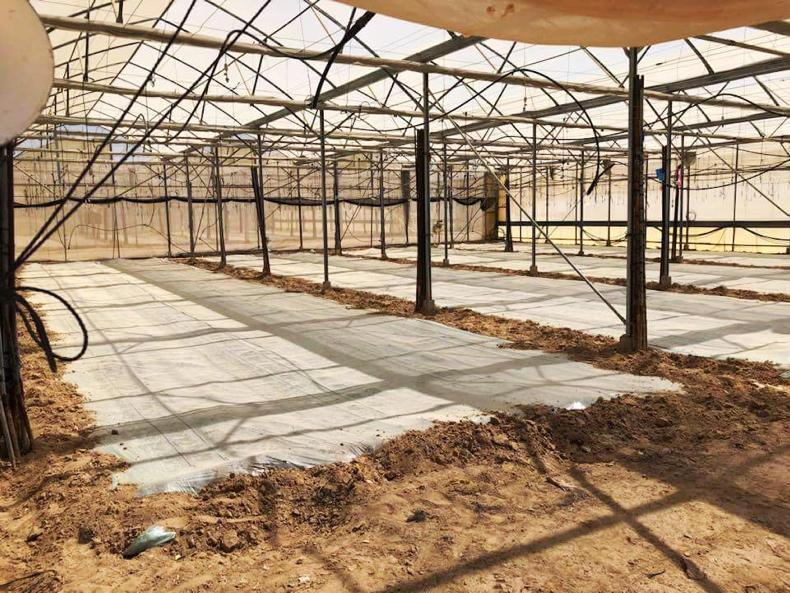
Fruit and vegetable farming is done under cover in Israel due to the climate.
We travelled the length and breadth of the country. We stood on the Golan Heights looking into Syria in the north, while also spending a night in the Negev desert in the south. We had a night in the West Bank to the east and Tel Aviv in the west.
What we saw in Israel is a population making the most of every possible resource they have. Israel has a land mass smaller than Munster and, according to the World Bank, only 25% of this is suitable for agriculture. Despite being in drought for the past five years, Israel is 85% self-sufficient in its food needs for its population of almost 9m people.
Fruit and vegetables make up 50% of Israeli agricultural production, with meat and dairy making up most of the other 50%. Israeli dairy cows are the highest-producing cows in the world.
In the south in the desert there is no water (30mm average rainfall, a wet morning in Kerry) or even soil. However, farmers import their soil needs and grow crops that can handle brackish water (salty water). Some farmers also build desalination plants to take the salt out of water.
Innovators
Either way, Israeli farmers are innovators who are always trying to find new crops that can grow in these conditions or new facilities to grow and irrigate existing crops.
The main market for Israeli farmers is in producing fresh fruit and vegetables for export to Europe during the winter period. All this is very interesting to see but I would have a big question on the long-term sustainability of trying to farm in an environment where it is just not meant to be.
Technically, I am sure the Israelis will find ways to make it work but long-term, as water becomes even more scarce in this region, will it be financially or environmentally viable to keep it going? Of course, this being Israel things might be more complicated than just looking at economics. Is it just coincidence that most of the farms in this desert are near its border?
At the moment, farmgate prices for milk and meat are set by the government. This is done by looking at costs of production on farms and setting a price where the farmer makes a reasonable profit. There are quotas in place for milk to ensure there is no oversupply. Milk produced over quota will be supplied at a loss.
The Israeli government is looking at liberalising the domestic market to allow for more imports. While in theory this looks like a good government policy to ensure cheaper food prices, I would worry for the survival of Israel’s dairy farmers if this happens.
Dairy farming in Israel is a high-cost operation, so how can farmers compete with milk coming from Europe, where it that can be produced much cheaper? From a geopolitical perspective is it a wise decision to make given the chance that a future conflict in the area could see major disruption to imports to Israel.
Technology
So what about all the technology and innovation we hear about in Israel? Well it is embedded in society and everywhere you look. The farms are organised in kibbutz and moshav. A moshav is a number of independent farmers organised almost like a local co-op while a kibbutz is really like a collective farming model where maybe 600 people all live in a community.
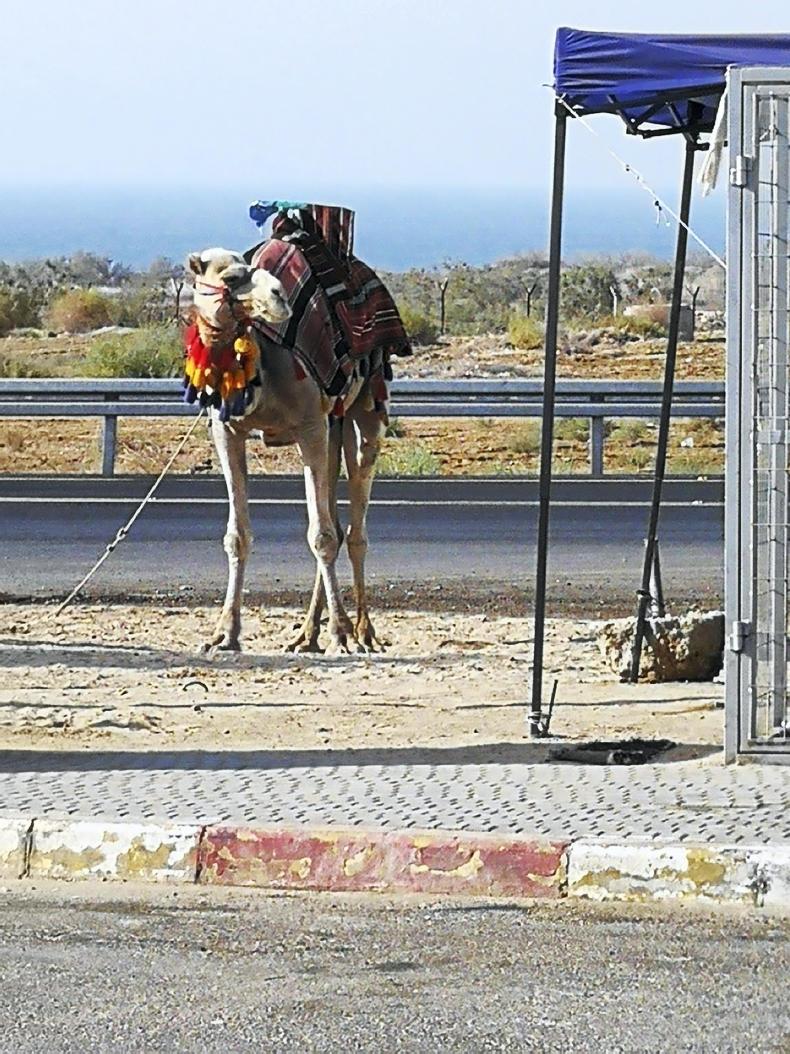
A camel tied up outside a petrol station in the West Bank
About 50 years ago, it was recognised that more was required for the kibbutz model to survive. Each kibbutz now sets up its own factory producing different products. Today, some world-renowned companies such as Netafim in irrigation, Bio Bee in pest management and Alfimilk in milking technology are all Kibbutz owned and operated. These industries not only employ members of its Kibbutz but members of the general population also.
These operations not only return profit to the Kibbutz but also provide a lifeline for ensuring young people remain and live in these communities. Children from Kibbutz communities are encouraged to study topics relevant to what is being done in the kibbutz with a view to returning to work in these businesses at some point to settle down and have a family in the community. So it’s not just in Tel Aviv where you will find innovative companies and start-ups.
Direct support for farming still appears to be high on the government agenda.
The Israeli government sees maintaining the rural population as important, with higher capital grants and lower tax rates available for farming in more remote areas.
If a young person goes to work in agriculture after their national service with the military, earnings for the first two years are tax-free. After this two-year period, a young farmer can go to study an agricultural-related topic in college, which will be fully paid by the government.
Overall impressions
So what are my overall impressions of Israel? I think it's a hard country populated by hard people. The Israelis themselves will be first to admit they are a tough people with no airs and graces.
Is it the natural environment or the political environment that makes the Israelis so hard? I can't say for sure but maybe a combination of both. I am in no position to comment on the complexities of Middle Eastern politics but to say you are always aware of the situation when you visit. However, the situation definitely does not affect the day-to-day life of the ordinary Israeli, of whom 20% are Muslim.
What we found was people from both faiths mingling without any issue in their day to day lives but of course this could possibly change very quickly if something was to ignite trouble.
On the agricultural side, the attitude seems to be that no obstacle is insurmountable. It is a great attitude to experience. Israelis have no fear of failure either. If you try something and it doesn’t work it’s just a case of try something else.
This is borne out even in their bankruptcy laws which are some of the most liberal in the world. So I think because of this Israeli agriculture will continue to thrive, it might face some blips but it’s in the country’s DNA to bounce back stronger.
As part of the six-week Global Focus Programme of my Nuffield scholarship, I got to spend a week in Israel and experience first-hand a little of what the country is all about. First off, as I peered through my small window on the flight into Tel Aviv, I was asking myself where is the agriculture in Israel?
After coming from Japan, with its rich green colours not dissimilar to Ireland, the only thing the eye can see descending into Israel is a barren yellow countryside. In Israel, you need to get out on the ground to see agriculture, as a huge amount of it is hidden under covered tunnels or sheds to protect crops and livestock against the harsh sun of the Middle East.

Fruit and vegetable farming is done under cover in Israel due to the climate.
We travelled the length and breadth of the country. We stood on the Golan Heights looking into Syria in the north, while also spending a night in the Negev desert in the south. We had a night in the West Bank to the east and Tel Aviv in the west.
What we saw in Israel is a population making the most of every possible resource they have. Israel has a land mass smaller than Munster and, according to the World Bank, only 25% of this is suitable for agriculture. Despite being in drought for the past five years, Israel is 85% self-sufficient in its food needs for its population of almost 9m people.
Fruit and vegetables make up 50% of Israeli agricultural production, with meat and dairy making up most of the other 50%. Israeli dairy cows are the highest-producing cows in the world.
In the south in the desert there is no water (30mm average rainfall, a wet morning in Kerry) or even soil. However, farmers import their soil needs and grow crops that can handle brackish water (salty water). Some farmers also build desalination plants to take the salt out of water.
Innovators
Either way, Israeli farmers are innovators who are always trying to find new crops that can grow in these conditions or new facilities to grow and irrigate existing crops.
The main market for Israeli farmers is in producing fresh fruit and vegetables for export to Europe during the winter period. All this is very interesting to see but I would have a big question on the long-term sustainability of trying to farm in an environment where it is just not meant to be.
Technically, I am sure the Israelis will find ways to make it work but long-term, as water becomes even more scarce in this region, will it be financially or environmentally viable to keep it going? Of course, this being Israel things might be more complicated than just looking at economics. Is it just coincidence that most of the farms in this desert are near its border?
At the moment, farmgate prices for milk and meat are set by the government. This is done by looking at costs of production on farms and setting a price where the farmer makes a reasonable profit. There are quotas in place for milk to ensure there is no oversupply. Milk produced over quota will be supplied at a loss.
The Israeli government is looking at liberalising the domestic market to allow for more imports. While in theory this looks like a good government policy to ensure cheaper food prices, I would worry for the survival of Israel’s dairy farmers if this happens.
Dairy farming in Israel is a high-cost operation, so how can farmers compete with milk coming from Europe, where it that can be produced much cheaper? From a geopolitical perspective is it a wise decision to make given the chance that a future conflict in the area could see major disruption to imports to Israel.
Technology
So what about all the technology and innovation we hear about in Israel? Well it is embedded in society and everywhere you look. The farms are organised in kibbutz and moshav. A moshav is a number of independent farmers organised almost like a local co-op while a kibbutz is really like a collective farming model where maybe 600 people all live in a community.

A camel tied up outside a petrol station in the West Bank
About 50 years ago, it was recognised that more was required for the kibbutz model to survive. Each kibbutz now sets up its own factory producing different products. Today, some world-renowned companies such as Netafim in irrigation, Bio Bee in pest management and Alfimilk in milking technology are all Kibbutz owned and operated. These industries not only employ members of its Kibbutz but members of the general population also.
These operations not only return profit to the Kibbutz but also provide a lifeline for ensuring young people remain and live in these communities. Children from Kibbutz communities are encouraged to study topics relevant to what is being done in the kibbutz with a view to returning to work in these businesses at some point to settle down and have a family in the community. So it’s not just in Tel Aviv where you will find innovative companies and start-ups.
Direct support for farming still appears to be high on the government agenda.
The Israeli government sees maintaining the rural population as important, with higher capital grants and lower tax rates available for farming in more remote areas.
If a young person goes to work in agriculture after their national service with the military, earnings for the first two years are tax-free. After this two-year period, a young farmer can go to study an agricultural-related topic in college, which will be fully paid by the government.
Overall impressions
So what are my overall impressions of Israel? I think it's a hard country populated by hard people. The Israelis themselves will be first to admit they are a tough people with no airs and graces.
Is it the natural environment or the political environment that makes the Israelis so hard? I can't say for sure but maybe a combination of both. I am in no position to comment on the complexities of Middle Eastern politics but to say you are always aware of the situation when you visit. However, the situation definitely does not affect the day-to-day life of the ordinary Israeli, of whom 20% are Muslim.
What we found was people from both faiths mingling without any issue in their day to day lives but of course this could possibly change very quickly if something was to ignite trouble.
On the agricultural side, the attitude seems to be that no obstacle is insurmountable. It is a great attitude to experience. Israelis have no fear of failure either. If you try something and it doesn’t work it’s just a case of try something else.
This is borne out even in their bankruptcy laws which are some of the most liberal in the world. So I think because of this Israeli agriculture will continue to thrive, it might face some blips but it’s in the country’s DNA to bounce back stronger.





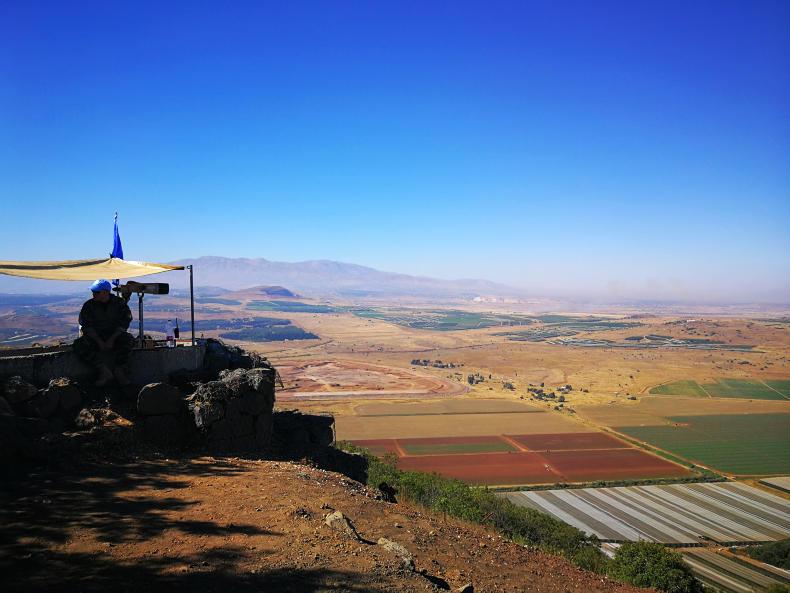


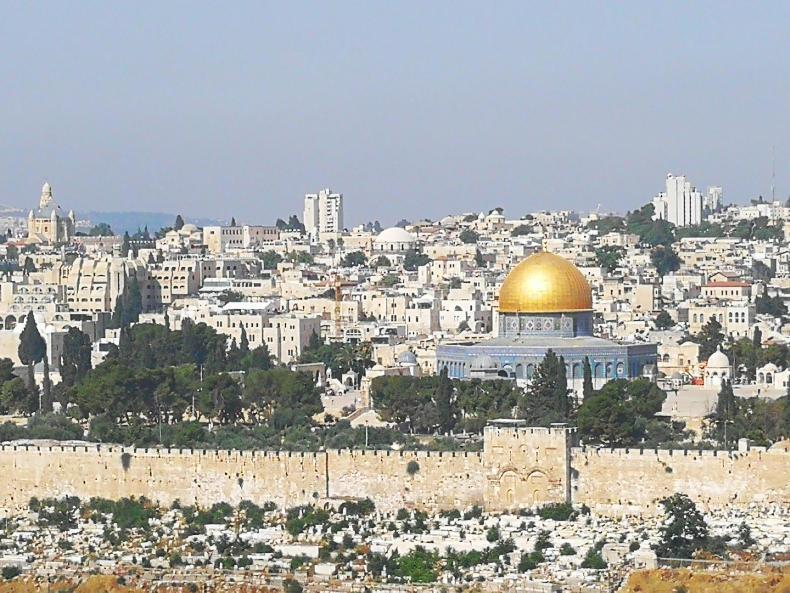





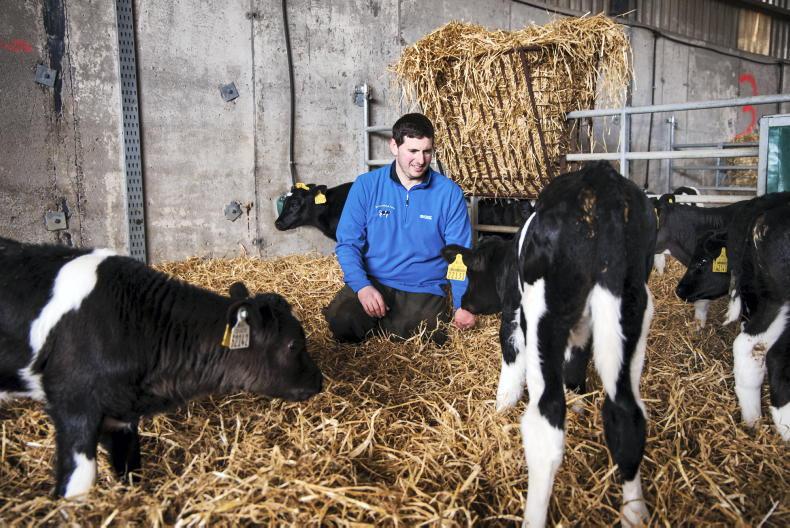
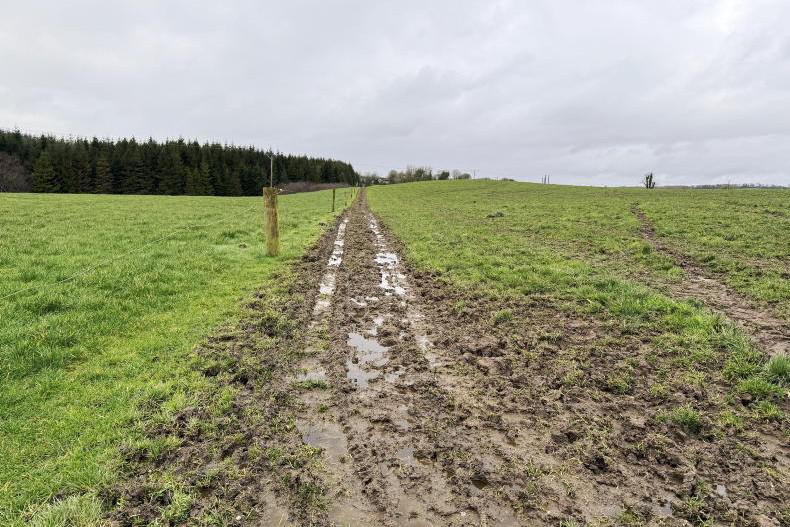
SHARING OPTIONS